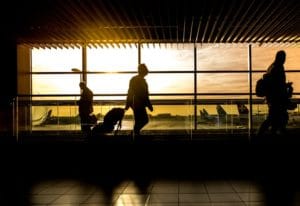People with hearing loss in Burbank face challenges in all aspects of their daily lives. For those in the workforce, performing routine tasks can be trying. Learn to be a better colleague by advocating for your hearing-impaired coworkers. It’s easier than you think.
Hearing Loss in the Workplace

Many people associate hearing loss with the elderly, but in reality, about 60 percent of people with a hearing disability are currently employed. In addition to the stressors typical with any job – tight deadlines, tyrannical bosses, disgruntled customers – these folks must overcome other obstacles to productivity, such as noise distractions and communication difficulties.
Whether you work directly with somebody who has hearing loss or only pass them occasionally in the hallway, there are steps you can take to make their work life easier. Simply making them feel included is a great start! You can raise awareness through onsite deaf awareness courses (available through many government and community organizations); these will help employees better understand the nature of hearing loss and is a great way to show support for your hearing-impaired coworker. They will feel like a valuable member of the organization.
Be sure your colleague with hearing loss has access to tools that will help him or her perform their job more easily. A quiet place to work that is free from distraction is a necessity. Background noise makes it very difficult for hearing impaired individuals to concentrate, so a cubicle in the middle of a crowded office will probably be detrimental to their success. Look for an unused private office or, at the very least, a corner spot with less traffic. Consider investing in Hearing Aid Compatible (HAC) or captioned telephones and assistive listening devices and provide written transcripts of meetings and company announcements to ensure they don’t miss out on any important information. Incorporate flashing lights into your emergency notification systems to complement audible alarms; most people with hearing loss have trouble with high frequencies.
Implementing a health benefits package that offers coverage for hearing aids and services such as vocational rehabilitation will also help offset the high costs associated with hearing loss.
When talking to your hearing-impaired colleague, look for a well-lit spot; maintain eye contact; don’t cover your mouth when speaking; and offer to repeat yourself if they are having trouble following along.
For more tips on helping out coworkers with hearing loss, speak to a Burbank audiologist today.



